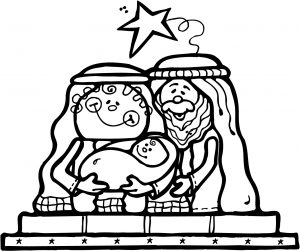For November 28, 2021
Today’s version of the secular, humanistic, socialist society denies the existence of God while it elevates humanity, wealth, and technology to the level of deity. In other words, our sin-convicted world is driven by its aversion to Jesus Christ, which causes it to discredit, or even ignore, the ultimate end and scope of all life…in its fullness—God Himself!
For outside of Jesus Christ, life has no true purpose or meaning. With  the absence of His divine truth in us, we manufacture our own “truths,” which are lies and strong delusions, for selfish, personal, or political gain. He alone is our means to fulfillment in God as John 14:6 (NLT) declares,
the absence of His divine truth in us, we manufacture our own “truths,” which are lies and strong delusions, for selfish, personal, or political gain. He alone is our means to fulfillment in God as John 14:6 (NLT) declares,
I am the way, the truth, and the life. No one can come to the Father except through me.
We will not find fulfillment in social connections, social consciousness, recreation, wealth, industry, fame, or intellectual pursuits. Although some of these achievements are financially beneficial, they do not address the needs of our eternal souls satisfactorily,
What good will it be for someone to gain the whole world, yet forfeit their soul? Or what can anyone give in exchange for their soul? (Matthew 16:26 NIV)
Invariably, these things do not satisfy our spiritual longing for God’s acceptance and abiding love. Thus, the things we elevate to replace Him become the gods we futilely worship and trust, leaving us spiritually bankrupt and unfulfilled,
They have forsaken me, the spring of living water, and have dug their own cisterns, broken cisterns that cannot hold water. Jeremiah 2:13 (NIV)
Sin causes us to live shallow lives hating God, disrespecting ourselves, and denouncing others through intimidation and hostile violence. Proud and privileged, we begrudge, vandalize, and plunder. Our aversion to God and godly things prevents our engaging in healthy relationships. As a result, we aimlessly chase relationships, never finding lasting fulfillment.
The government is not exempt from this treachery. In Jesus’ day, Rome enforced emperor worship, which posed a serious threat to all Christians since it mandated they worship mortals with violators being executed,
The refusal of all Christians to participate in [Emperor Worship] precipitated violent persecution, for the Christians consistently objected to worshipping a human being. The polytheistic Romans, who could always add one more god to their list of deities, looked upon their refusal as a lack of proper recognition for the emperor and a distinctly unpatriotic attitude. Between these two viewpoints, there could be no reconciliation.
In today’s world, sin causes us to worship the “state” in the form of a godless Marxist-Leninist ideology people endorse around the world,
At the core of its philosophy and conduct is the conviction and the oft-repeated announcement, “There is no God.” The absence of God is not simply another acceptable philosophic point of view, among many others. Rather, it is the denial of the Christian claim—yes, the teachings of the Bible—that there is a just, holy, loving, and personal God who has created the universe and who presides over its continuance.
Unfortunately, this godless ideology influences our politics, business, schools, colleges, media, and even the clergy, vainly promoting an empty utopian promise that we can provide for ourselves, apart from God. In other words, we have no need for Jesus Christ, God, or the Bible; we are all we will ever need!
It also enforces a censorship against biblically-centered ideals that contrast their “everything is relative” and “everyone is right” narratives. In this godless utopia, hostility and disrespect replace common courtesy and consideration, just as if the eschatological prophesy, “After that, [Satan] must be set free for a short time” (Revelation 20:3 NIV) is happening right before our eyes.
Self-idolatry is not new as shown by the workers on the Tower of Babel, who were seduced by their own sin, pride, and arrogance,
Come, let’s make bricks and bake them thoroughly…Let us build ourselves a city, with a tower that reaches to the heavens, so that we may make a name for ourselves. Genesis 11:3-4 (NIV)
As those builders failed, today’s godless elitists fail because they refuse to acknowledge the universal, inherent sin-problem plaguing all of us,
When you follow the desires of your sinful nature, the results are very clear: sexual immorality, impurity, lustful pleasures, idolatry, sorcery, hostility, quarreling, jealousy, outbursts of anger, selfish ambition, dissension, division, envy, drunkenness, wild parties, and other sins like these. Galatians 5:19-21 (NLT).
No sane person wants to live in a world where people think and act irresponsibly constantly. Yet, left to our own devices, we are doomed to experience it since we all commit sin. Ecclesiastes 1:2 teaches our human efforts are “futile and meaningless” because they do not offer us the forgiveness of sin and peace with God, which are essential to a spiritually fulfilling, eternal life.
Repenting of our sin and returning to our Lord is the first step of blessed recovery and moves us towards establishing true Christian Community with Christ at the center,
For where two or three are gathered together in My name, I am there in the midst of them. Matthew 18:20 (NKJV)
Acknowledging and confessing our sins before God, accepting Jesus Christ vicarious death on Calvary as the payment for our transgressions, and inviting Christ to be the center of our lives and faith brings us into an state of blessed peace and favor with God that lasts forever.
Next, Christian parents need to play an active, pivotal role in the lives of their children as we practice a consistent Christ-likeness before our sons and daughters; raising them in the nurture and admonition of the Lord while training them in the way they should go (Proverbs 22:6, Ephesians 6:4).
Not by merely telling our children about the Lord Jesus Christ—His death, burial, resurrection, ascension, and glorious return—but we must also lead them to church, pray together, and have family Bible studies together, which will speak volumes towards laying the solid foundation for their spiritual development and growth.
Our parental faith and fidelity can help cultivate a desire within our children to personally experience and learn about the awesome God we share consistently. No one should ever trivialize the essential role that loving, nurturing, godly parents play in raising children in the right path,
It’s not enough to just provide materially for our children. It’s the sole duty and highest responsibility for parents to cultivate spiritual truths in their children’s lives as well.
In addition, the local church can play a significant role in establishing and prospering the Christian Community. It is there we find the spiritually mature, biblically astute men and women who recognize the importance of quality, Bible-based Christian education and discipleship, which aids on our development of a Christian world view.
Such men and women can be found in various places in society. However, it is within the universal church of our Lord and Savior, Jesus Christ where we can find a strong core of visionary and stable leaders, who provide training and service opportunities for that help nurture and strengthen our faith.
We who avail ourselves regularly to these opportunities can learn how to develop our spiritual gifts and secular abilities through church leadership, church administration, music ministries, greeting and hospitality, community outreach, community food and shelter programs, prison ministries, and other Christian service opportunities under the tutelage of capable, mature, knowledgeable, and dedicated mentors.
We can also find within the church, astute Bible teachers who adroitly facilitate the student’s comprehension and incorporation of sound, fundamental scriptural nuances and doctrine critical for our spiritual development. We should never trivialize a church’s need for quality, Bible-based Christian education and discipleship programs—for all ages. For it produces lasting, positive effects on both the church and the surrounding community,
So while effective Christian education isn’t the only thing that matters in church life, it is by far the most influential factor in nourishing faith…congregations should be primarily about the task of “equipping saints” for ministry. The church structure and institution should empower people for ministry, rather than accomplishing the ministry for them.
This author observes further,
The challenge to congregations, then, is to help each member see himself or herself as an active minister—as a representative of Christ in the world. When local churches take seriously this responsibility to nurture each person’s faith, the work of the church will be done through and by its members, who are, after all, the church.
In opposition to godless state worship, the global Christian Community is where Christ is preached and demonstrated in the lives of His followers. It becomes our extended family that provides the care, guidance, discipline, and counsel we need to grow into honest, hard-working, responsible, law-abiding, productive members of society.
Most importantly, there we can experience and express a solemn reverence for God and His Word, along with a fervor, anticipation, and vigilance about our Lord’s imminent return, which will not only transform the lives of others but will also inspire future generations to live valiantly for Christ—without compromise. Won’t you live for Christ today and further the Christian Community?
What a Wonderful Savior!
 will be upon His shoulder. And His name will be called Wonderful, Counselor, Mighty God, Everlasting Father, Prince of Peace. Isaiah 9:6 (NKJV)
will be upon His shoulder. And His name will be called Wonderful, Counselor, Mighty God, Everlasting Father, Prince of Peace. Isaiah 9:6 (NKJV)

 mental place where we can celebrate peace and serenity as our constant standard of living.
mental place where we can celebrate peace and serenity as our constant standard of living. everyone to his own city. Joseph also went up from Galilee, out of the city of Nazareth, into Judea, to the city of David, which is called Bethlehem, because he was of the house and lineage of David, to be registered with Mary, his betrothed wife, who was with child. So it was, that while they were there, the days were completed for her to be delivered. And she brought forth her firstborn Son, and wrapped Him in swaddling cloths, and laid Him in a manger, because there was no room for them in the inn.
everyone to his own city. Joseph also went up from Galilee, out of the city of Nazareth, into Judea, to the city of David, which is called Bethlehem, because he was of the house and lineage of David, to be registered with Mary, his betrothed wife, who was with child. So it was, that while they were there, the days were completed for her to be delivered. And she brought forth her firstborn Son, and wrapped Him in swaddling cloths, and laid Him in a manger, because there was no room for them in the inn. the absence of His divine truth in us, we manufacture our own “truths,” which are lies and strong delusions, for selfish, personal, or political gain. He alone is our means to fulfillment in God as John 14:6 (NLT) declares,
the absence of His divine truth in us, we manufacture our own “truths,” which are lies and strong delusions, for selfish, personal, or political gain. He alone is our means to fulfillment in God as John 14:6 (NLT) declares, celebration feast, which has since become our Thanksgiving Holiday celebration.
celebration feast, which has since become our Thanksgiving Holiday celebration.